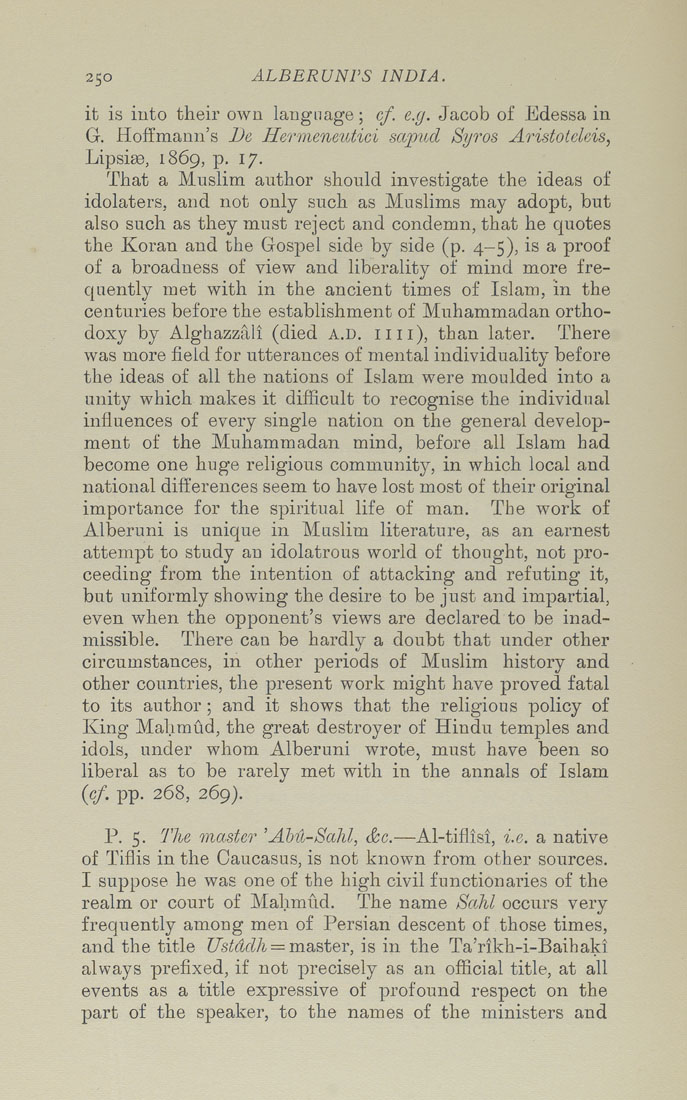250 ALBERUNTS INDIA.
it is into their own language; cf. e.g. Jacob of Edessa in
G. Hoffmann's I)e Hermeneutici sapud Syros Aristoteleis,
Lipsise, 1869, p. 17.
That a Muslim author should investigate the ideas of
idolaters, and not only such as Muslims may adopt, but
also such as they must reject and condemn, that he quotes
the Koran and the Gospel side by side (p. 4-5), is a proof
of a broadness of view and liberality of mind more fre¬
quently met with in the ancient times of Islam, in the
centuries before the establishment of Muhammadan ortho¬
doxy by Alghazzali (died A.D. iiii), than later. There
was more field for utterances of mental individuality before
the ideas of all the nations of Islam were moulded into a
unity which makes it difficult to recognise the individual
influences of every single nation on the general develop¬
ment of the Muhammadan mind, before all Islam had
become one huge religious community, in which local and
national dift'erences seem to have lost most of their original
importance for the spiritual life of man. The work of
Alberuni is unique in Muslim literature, as an earnest
attempt to study an idolatrous world of thought, not pro¬
ceeding from the intention of attacking and refuting it,
but uniformly showing the desire to be just and impartial,
even when the opponent's views are declared to be inad¬
missible. There can be hardly a doubt that under other
circumstances, in other periods of Muslim history and
other countries, the present work might have proved fatal
to its author; and it shows that the religious policy of
King Mahmud, the great destroyer of Hindu temples and
idols, under whom Alberuni wrote, must have been so
liberal as to be rarely met with in the annals of Islam
(cf pp. 268, 269).
P. 5. Ihe master 'Abu-Sethi, &c.—Al-tiflisi, i.e. a native
of Tiflis in the Caucasus, is not known from other sources.
I suppose he was one of the high civil functionaries of the
realm or court of Mahmud. The name Scdil occurs very
frequently among men of Persian descent of those times,
and the title Ustddh ^raa^ter, is in the Ta'rikh-i-Baihaki
always prefixed, if not precisely as an official title, at all
events as a title expressive of profound respect on the
part of the speaker, to the names of the ministers and
|








